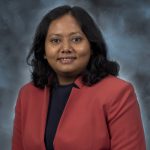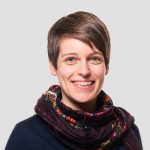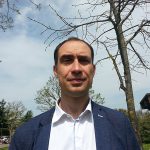Jump to: Programme overview | Keynote speakers | Evening Programme
Programme for Wageningen Soil Conference 2023
The detailed programme per day is now available and can be downloaded here (updated 29 Aug). Furthermore, you can download an overview pdf of the programme here, and the book of abstracts here (updated 25 Aug). Finally, you can view the second #WSC23 conference circular here.
In addition to the schedule listed below, on the evening of Monday 28th August, there will be a welcome reception and registration for the conference from 17.00-19.30. Side events also take place on Monday 28th August. The full programme begins on Tuesday, 29th August.
Would you like to visit the World Soil Museum during the Wageningen Soil Conference? There are special opening hours for conference attendees. In addition to the regular Wednesday afternoon public hours, conference attendees can drop in on the museum on Tuesday or Thursday from 12.00-13.30 or sign up for a tour (limited capacity) on Friday, Sept 1 at 13.30. The museum is located in Gaia Building, see the Venue page for a campus map.
| Tuesday 29th August | Wednesday 30th August | Thursday 31st August | Friday 1st September | |||||||||||||||
| 7:30 | Registration, Aurora entrance | |||||||||||||||||
| 8:15 | OPENING WSC2023 Welcome by Mathilde Hagens and Floor Vermeulen (mayor Wageningen) | 8:00 | Registration & poster placement, Aurora entrance | 8:00 | Registration & poster placement, Aurora entrance | 8:00 | Registration, Aurora entrance | |||||||||||
| Aurora, C9119+C9120 | 8:30 | Aurora, C9119+C9120 | 8:30 | Aurora, C9119+C9120 | 8:30 | Aurora, C9119+C9120 | ||||||||||||
| 8:30 | Soils for society keynote | Advances in measuring and modelling soil processes keynote | Mapping and evaluating soil functions across scales keynote | Soils for nature-based solutions keynote | ||||||||||||||
| Peter Groffman (City University of New York) | Debjani Sihi (Emory University) | Madlene Nussbaum (Bern University of Applied Sciences) | Carlo Calfapietra (Institute of Research on Terrestrial Ecosystems) | |||||||||||||||
| 9:15 | Oral presentations | 9:15 | Oral presentations | 9:15 | Oral presentations | 9:15 | Oral presentations | |||||||||||
| 10:10 | coffee & poster placement, Aurora first floor | 10:10 | coffee & poster placement, Aurora first floor | 10:10 | coffee & poster placement, Aurora first floor | 10:10 | coffee, Aurora first floor | |||||||||||
| Parallel sessions | Parallel sessions | Parallel sessions | Parallel sessions | |||||||||||||||
| 10:40 | Room 1 orals | Room 2 orals | Room 3 orals | 10:40 | Room 1 orals | Room 2 orals | Room 3 orals | 10:40 | Room 1 orals | Room 2 orals | Room 3 orals | 10:40 | Room 1 orals | Room 2 orals | Room 3 orals | |||
| 11:45 | ||||||||||||||||||
| 12:00 | Lunch and Poster session | 12:00 | Lunch and Poster session | 12:00 | Lunch and Poster session | Bridging Science and Society Panel discussion |
||||||||||||
| Aurora, first floor (posters) | Aurora, first floor (posters) | Aurora, first floor (posters) | ||||||||||||||||
| Aurora, ground floor (lunch) | Aurora, ground floor (lunch) | Aurora, ground floor (lunch) | 12:30 | LUNCH AND CLOSURE WSC2023 | ||||||||||||||
| 13:30 | Masterclasses | 13:30 | Masterclasses | 13:30 | Masterclasses | Aurora, ground floor | ||||||||||||
| 16:30 | break | 16:30 | break | |||||||||||||||
| 17:00 | Human Bingo | 17:00 | Young scientists pitches “Rising Soil Stars” | 17:00 | Perspectives on Soils location t.b.d. |
|||||||||||||
| – | – | |||||||||||||||||
| 19:00 | followed by networking time | 19:00 | followed by networking time location t.b.d. | 19:00 | travel towards city center | |||||||||||||
| 19:30 | Conference dinner | |||||||||||||||||
| Grote Kerk, Wageningen | ||||||||||||||||||
| – | ||||||||||||||||||
| 22:00 | ||||||||||||||||||
Jump to: Programme overview | Keynote speakers | Evening Programme
Keynote speakers

Tuesday August 29 – Soils for Society
Prof. Peter Groffman, City University of New York
Peter Groffman is Professor at the City University of New York Advanced Science Research Center at the Graduate Center and the Brooklyn College Department of Earth and Environmental Sciences. He studies the role of microbial processes in impacting gas exchange between the soil and air, with a particular focus on nitrogen. His research projects have ranged across multiple spatial scales and included a wide range of techniques, from isotopic and geochemical approaches to remote sensing and simulation models.

Wednesday August 30 – Advances in Measuring and Modelling Soil Processes
Dr. Debjani Sihi, Emory University
Debjani Sihi is an assistant professor in the Department of Environmental Sciences at Emory University (GA, USA). She is an environmental biogeochemist with a broad research interest in soil organic matter dynamics and greenhouse gas emissions from natural and managed systems. Her research program includes both empirical studies and process-based modeling. She uses biogeochemical models to evaluate the fate of soil carbon (and nutrient) in the face of climate change in systems ranging from the tropics and subtropics to temperate and boreal transition forests.

Thursday August 31 – Mapping and Evaluating Soil Functions across Scales
Dr. Madlene Nussbaum, Bern University of Applied Sciences
Madlene Nussbaum is a research associate at Bern University of Applied Sciences, school of Agricultural, Forest and Food Sciences within the research group soil use and management. She is a nationally and internationally recognized digital soil mapping expert. Her current work focuses on methodological developments to set up a sound mapping framework for subsequent soil map applications. She developed a practical machine learning based sampling framework to acquire new data for multi-purpose soil assessments.
During the past years M. Nussbaum invested in the communication of soil mapping products especially to make methods understandable and to introduce end-users to map uncertainty. As former president of the Swiss Soil Science Society she is aware of the needs of policy makers and soil practitioners. She largely promoted knowledge transfer by founding a working group for modern soil information methods within the Swiss Soil Science Society or by offering courses or consulting government agencies. Over the years, she chiefly contributed to build confidence in approaches sometimes difficult to convey. Digital soil mapping and assessment is now considered the way to survey large areas in Switzerland in the near future.
European policy makers show a previously unknown interest in soil and quantifying, monitoring, protecting or improving its functions and services to society. Increasing efforts have therefore been made to map soil properties and asses functions in space and/or time.
Several challenges hamper the provisioning of the required soil data to implement new legal frameworks to take policy decisions and effectively protect soil functions as intended. Relevant soil measurements are often not available to evaluate soil function indicators. Even if basic soil properties were observed more complex attributes are missing and need to be approximated (e. g. soil density, structural and biological attributes). These approximations and lack of high resolution survey results in prediction uncertainty in many cases larger than the level of decision or the temporal changes evaluated. Even if changes for example due to different management practices are significant, functional effect remains unclear for many indicators. A change in soil function indicator for primary production might remain irrelevant as biomass production is not substantially altered.

Friday September 1 – Soils for Nature-Based Solutions
Dr. Carlo Calfapietra, Institute of Research on Terrestrial Ecosystems
Dr. Calfapietra is a research director of Institute of Research on Terrestrial Ecosystems, National Research Council, Italy. His research interests include energy, water and carbon exchange between soil, vegetation and atmosphere. For many years C. Calfapietra has been studying functions and ecosystem services of urban green infrastructures with especial focus on air quality and climatic comfort. He is an expert of European Commission for Nature-Based Solutions. Enhancing functionality of urban green infrastructures to improve quality of life in cities is the core idea of the projects coordinated by C. Calfapietra. He is an active member of Czechglobe, Centre of Excellence for Studies on Climate Change of AVCR, Brno (Czech Republic), where his research is focused on forests urban resilience and sustainable urban development.
The conference will host an engaging and inspiring evening program with a variety of activities for all the conference’s participants. Monday, August 28th, the day before the official start of the conference, an opening event with drinks and snacks will be hosted by the municipality in the centre of Wageningen. On Tuesday, August 29th, a fun human bingo will facilitate people to know more about each other and network from personal and scientific points of view. Wednesday, August 30th, we will enjoy Ph.D. students’ pitches of their research during the “Rising Soil Stars” competition. During the last evening, on Thursday, August 31st, we will engage in an inspiring and insightful activity exploring our relationship with soils during the “Experiencing soil perspectives” event. Afterwards, we will continue the conversation and the networking at the official conference dinner, enjoying some delicious food with the colleagues met during the conference.
Tuesday evening, August 29 | Human Bingo
Human bingo is a loosely structured social activity that is all about networking and getting to know other researchers. Every person gets a bingo card that is made up of a matrix filled with traits that vary from a personal level to a scientific level. The premise is to talk to other people to find out if these people have these traits. With every match a cell of the matrix is filled in with that person’s name. If a row/column/diagonal is formed, a bingo occurs. The first few people with bingo receive an award!
Wednesday evening, August 30 | Rising Soil Stars
Rising Soil Stars is a science communication competition. It allows young researchers to pitch their work to a broad audience in just three minutes, using nothing but a single slide to support their talk. In the end, the jury and the audience decide who deserves the title of Rising Soil Star the most. The 10 selected PhD students will get communication training by Emma Holmes from EEH productions. Emma is a Wageningen-based performer, storyteller and trainer with ample experience in science communication.
This night there will be live music by Saffron Soul as well. You cannot miss this! Learn more about the Rising Soil Stars event here.
Thursday evening, August 31 | Experiencing Soil Perspectives
How do we as soil scientists perceive and experience soils? We use a wide variety of devices and tools, such as microscopes, laboratory equipment and field campaigns, and we summarize our knowledge through publications, graphs, and tables. Approaching soils with such an academic perspective, we are likely to have different relationships with soils than people without soil science training. Humans have relationships with soils, and in addition to the science-based ones, these relationships can be personal, cultural or sensorial. Clearly, soils matter at many levels since people and communities can feel a deep connection with the soil of their homeland, as a source of identity, sustenance and a sense of place and belonging.
In order to effectively connect with society and share our work and knowledge about soil, we need to develop an appreciation of the diversity in ways that soils can be experienced and perceived. After three intensive days talking about soil science, during this evening we will take participants beyond the scientific perspective. We will provide drinks and an informal and relaxed space where we will engage with soils in unexpected and creative ways. There will be ‘stations’ dedicated to the experiencing of colors, smells, tastes, textures, emotions and feelings peculiar to soils. A moderator will be present at every station, to encourage discussions, conversations and the sharing of stories to inspire us to experience new soil perspectives.
| Key Dates WSC 2023 | |
| Call for abstracts published | January 26 2023 |
| Preliminary program published | February 2023 |
| Closing of abstract submissions | April 17 2023 |
| Early-bird registration opens | March 29 2023 |
| Updated program published | April 2023 |
| Early bird registration closes | May 30 2023 |
| Regular registration closes | July 3 2023 |
| Wageningen Soil Conference 2023 | August 28 – September 1 2023 |
